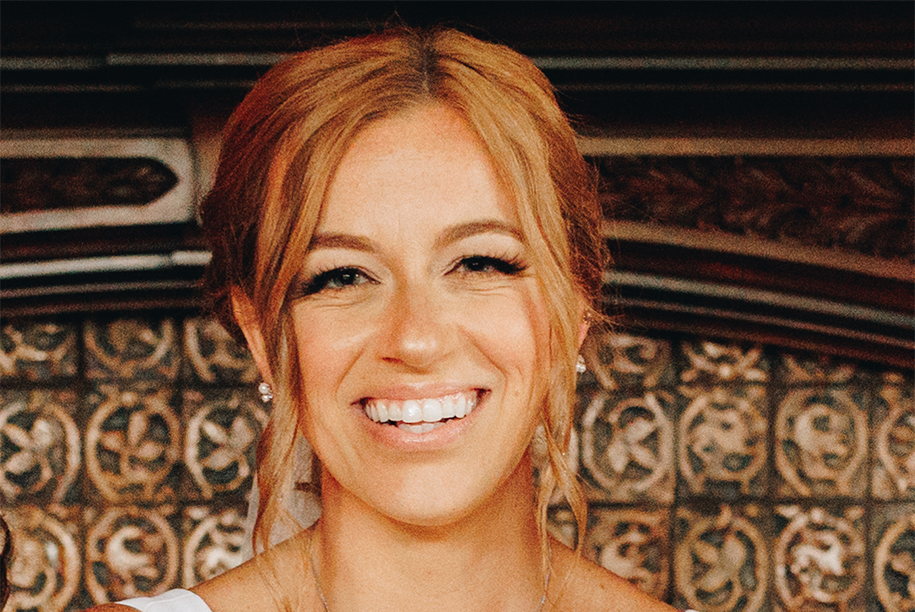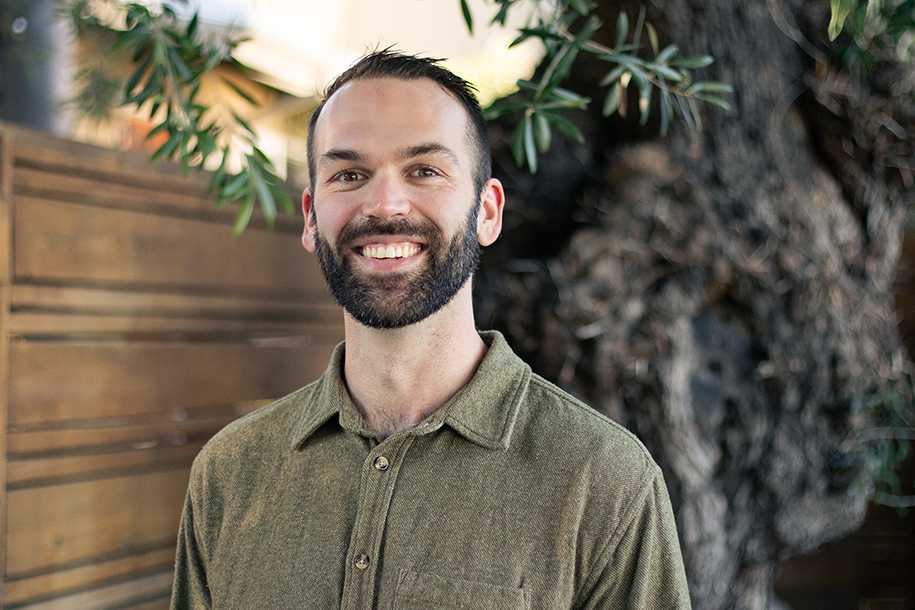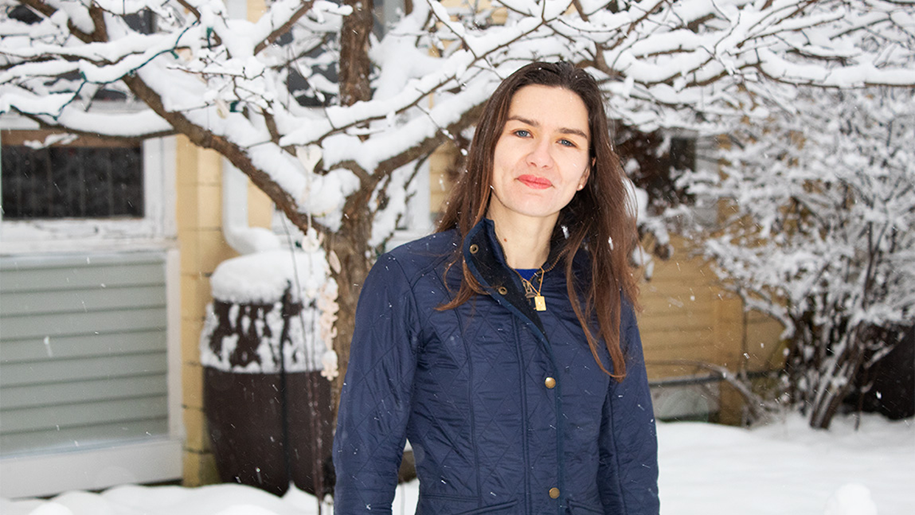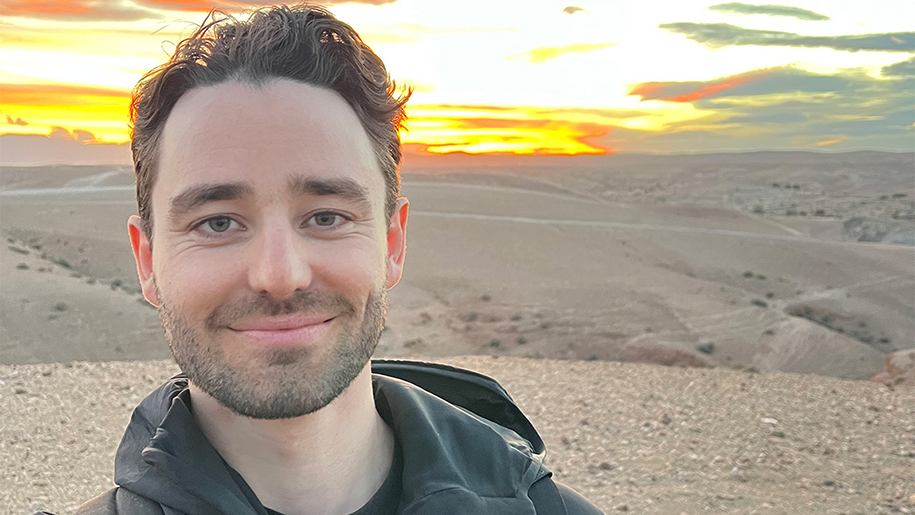Free to use College Girl Walking with Their Notes and Smiling | George Pak
Free to use College Girl Walking with Their Notes and Smiling | George Pak
Merriam-Webster defines a major as “an academic subject chosen as a field of specialization”—in other words, training for a particular path in life. But when a major is part of a liberal arts education, it takes on a different role. It becomes a way for students to explore their interests while, at the same time, developing a deep bench of key skills that can open doors to a wide range of rewarding careers.
Entering the workforce with a host of marketable skills has never been more important. According to the Bureau of Labor Statistics, the average person will hold 10 different jobs before they turn 40, and many experts estimate the typical worker will change careers five to seven times during their lives. That’s why having a well-rounded education is so important. It allows students to think of their major not as a direct pathway to one specific career but as a way to study what they’re passionate about while developing the crucial skills—like critical thinking, communication, and problem solving—that will allow them to change directions professionally to find just the right fit.
That’s precisely how the six CAS alums below approached their college experiences—and it paid off. Read on to discover how they all found professional success and personal satisfaction in careers that are linked more to the impressive range of skills they gained from their studies than the majors they declared.

Keeping Her Options Open
Jess Slayton Bowker ’14, M.A.’18Lives in: Brooklyn, NYMajor: English with minors in Spanish and art history; M.A. in EnglishCurrent Position: Associate Director of Regulatory Operations at Oscar Health
When Jess Slayton Bowker headed off to UVM, she didn’t have a particular career in mind. “I didn’t have one clear thing I wanted to do, so I focused on building skills rather than one specific trade,” she remembers. She chose English as her major because she enjoyed it and felt it could be used as a platform to discover other passions. A liberal arts education, she felt, was a framework that allowed her to explore interests and “keep doors open” while developing key skills that could be used in a wide range of careers. “When I graduated, I felt confident as a writer, an organizer, and a critical thinker, with the ability to communicate my goals and needs,” she says. “These are skills needed in any job.”
When you’re 18, Jess points out, it’s hard to know what you want to do with the rest of your life. Even if you think you know, focusing all your studies on a particular professional path doesn’t leave you with many choices if you change your mind down the road. “Getting a well-rounded education allows you the freedom and ability to pivot so you’re not pigeon-holed into doing just one thing,” she says.
A paid undergrad internship at a health insurance company launched Jess on the path she’s followed so far in her career. “I remember looking at the intern jobs and thinking, I could do any of these things. My education gave me the confidence to market my skills and personality,” Jess says. Her current role is part legal and part business and requires a lot of writing, whether she’s tracking new legislative developments, crafting internal policies and procedures, or developing audits.
Jess loves what she’s doing, but she stresses that she doesn’t know exactly where her career path will lead. “That’s a very fun and important part of professional life: keeping my options open and knowing I have choices,” she says.

Gaining a Wider Perspective
Blaine Billingsley ‘09Live in: Los Angeles, CAMajors: Comparative religion and music compositionCurrent position: Senior Staff UX Designer at YouTube
Blaine Billingsley wasn’t thinking about his future career when he arrived at UVM for his freshman year, either. He chose to major in comparative religion because the topic enthralled him. Growing up in Texas in a religious family, he considered church-related activities to be normal parts of his daily life. But as he got older, he found himself becoming less devout. “I fell in love with religion as I fell out of religion,” Blaine says. “It’s an amazing window into our society and what makes us human.” The choice to double-major in music composition was passion-driven as well. “I just wanted to do stuff I thought was cool and follow the thread of what I was interested in,” he says.
As a UX interaction designer at YouTube, Blaine says his role hinges on the ability to understand how humans interact with technology. “My job is to develop a deep understanding of the real people using our products, translating their aspirations and needs into what YouTube can do for them.” UX designers act as architects, drawing up plans, understanding the purpose behind the plans, and communicating those blueprints to the engineers who can bring them to life.
“When you’re doing UX design, you’re talking about the things that people value most in the world,” he says. “Religion has taught me to look at beliefs and actions, at apparent contradictions, to read a text critically and break it down.” He points out that a platform used by 2.5 billion people a day can’t be designed based on personal experiences. “There are different norms in different cultures, and we need broad-based knowledge to understand those differences.”
When hiring for his team at YouTube, Blaine is drawn to candidates who, like himself, have liberal arts degrees. “If you don’t have UX skills, you can be taught and learn those quickly,” he says. “What I can’t teach as easily is how to think critically about your own work, to ask questions and make connections.”
He has recently been asking himself some questions about the next step in his own career. “I really enjoy designing and, as I move up, I’ve been doing less of that,” he says. “I could see myself going to a company with more of a maker feel.” Happily, Blaine has all the skills he needs to keep following where his interests lead him.

Following Her Passion
Heather Moore M.A. ’10, EdD ‘22Live in: Shelburne, VTMasters in: HistoryCurrent position: Executive Director of the Shelburne Craft School
Heather Moore never thought of her degree as a path to a specific job, but instead as a way to follow her passions. “I throw myself into whatever I’m doing,” she says. “I love school and learning—it makes me feel sparkly and alive.” She came to UVM to do graduate work in history after earning a B.A. in history (with a minor in government) at Skidmore, but she didn’t have a solid plan. “My parents were supportive, and that was key,” she says. “I had a lot of friends in college with parents who wanted them to focus on specific careers.”
It's no surprise, then, that Heather’s path to the Shelburne Craft School wasn’t a direct one. She taught history for a while, then served as a dean at the Vermont Commons School. The common thread has been helping people learn, something she feels is extremely important. “Our world is incredibly complicated, and the more you read about it and study it, the more connections you see and patterns you can recognize,” she says. “Learning is about delving deeply into what it is to be human, discovering those connections and what makes people happy.” A liberal arts education, she notes, “gives you the seeds of that, the possibility of truly understanding your humanity.” The fact that employers value passionate workers who love what they do is part of the picture, too.
Heather says there’s no typical day at work, where her job is to make sure the school is living its creative mission and visions—and there’s a lot of flexibility in how she does that. Since joining the School last July, she has launched a number of new classes, including a new stained glass program and a life drawing class with nude models, not to mention the reboot of a “Forest to Furniture” class in partnership with Shelburne Farms. She also enjoys finding money to make programming more accessible and reach a diverse audience. (Her college writing experience comes in handy when crafting grant applications.) Recently, she introduced several free programs, including a “Weaving Your Story” workshop for people over 65, a woodworking class for veterans, and a program for kids experiencing homelessness.
Though she’s still young, Heather could see herself staying in this job for the rest of her career. “This is my dream job, and I can’t picture a better occupation of my time,” she says.

Seeing the Connections
Camila Auvray ‘18Live in: Paris, FranceMajor: Political science with minor in anthropologyCurrent position: Head of Development for HD Rain
Given her international background (she’s French and Brazilian and grew up in Paris), it’s not surprising that Camila Auvray has always been curious about how politics work within and among other countries. Having studied at an international secondary school in Paris, she knew she wanted to go abroad for college. She arrived at UVM as a political science major and added an anthropology minor after taking Luis Vivanco’s Cultural Anthropology class. “It was so interesting that I had to learn more,” she says. “I’ve always been interested in diverse cultures and how they value things differently.”
Her first job, in international development, was closely related to her major. But when she chose to return to Paris, a tight job market caused her to look further afield. HD Rain, a start-up firm that supplies real-time weather data, was looking for someone with an international background and wide range of skills, so she applied—and got the job.
Camila’s current role, as Head of Development, involves helping her company develop their business through a combination of business development and operations management. She’s the first to admit that she has no background in sales, but that hasn’t held her back. “I’m a generalist,” she says, noting that she approaches things differently from someone with a sales background. “I can connect with people on other levels because I’m not a typical salesperson. I look for ways to understand their problems.”
That ability, Camila says, comes in part from her liberal arts education. “I studied such a wide range of topics, with so many different people, that I had to learn to be flexible.” She points out that critical thinking, problem solving, and the ability to change topics very quickly are invaluable skills in the workplace.
Perhaps the most important thing she gained from her education, though, is what she calls cultural literacy. “It’s so important to me today, working in an international company with different cultures and histories.” By the end of this year, HD Rain will have offices in nine countries, and that global presence is evident in Camila’s work schedule. On a recent day, she conducted sales calls with companies in America, the south of France, and India, and this year’s business-travel destinations have included Ivory Coast and Monaco.
It's a testament to the power of a broad-based education that Camila’s experience in one of America’s smallest states has helped expand her world view and see her work through a global lens. “That’s so important nowadays,” she says. “Everything is connected.”

Developing a Core Base of Skills
Jake Guarino ‘17Live in: New York, NYMajor: Economics with minors in finance and political scienceCurrent position: Associate of Corporate Development at Spotify
Jake Guarino chose his major based on his passion for studying how people, politics, and the economy interact with each other. “Economics sits at the center of so many things I’m interested in,” he says. But he knew early on that he would branch out beyond that major and thought he might go into banking. “I never imagined myself as an economist,” he says. “But I knew studying economics would give me a broad base so I could keep my options open.”
Taking a wide range of classes in areas like political science, art history, and social work allowed Jake to meet a diverse spectrum of people from different backgrounds. “Instead of just teaching me a hard skill like accounting, my diverse course set showed me how to think more broadly about the world.” That turned out to be a crucial building block for his current position, which requires him to understand world events in the context of his company so he can identify emerging trends and growing market sectors.
In his role at Spotify, Jake helps drive the company strategy through a mixture of strategic project work and mergers and acquisitions—and he credits much of his success to his liberal arts education. “The ability to think about the world critically, to read an article and understand the political and economic impacts of it—the interplay of all these factors mirrors some of the conversations we had in class back in the day.”
Jake also can’t say enough about the importance of internships, noting that the three he held during college—at Seeds of Peace (a non-profit organization), BBDO (an advertising firm), and UBS (a financial institution)—helped him get where he is today. His advice to current students? “Shoot high. Contact alums, do a lot of networking, make some cold calls. You really need to put yourself out there to secure jobs at companies that may not necessarily be looking to hire UVM students.”
As for his own career, Jake isn’t finished putting himself out there, either. “I would love to be an entrepreneur, but I also love what I’m doing now,” he says. “I have a core base of skills to pursue whatever I want to do. My liberal arts education provides that kind of optionality.”

Never Limiting Herself
Camille Evans ‘20Live in: Paris, FranceMajor: Global and regional studies with minors in Spanish and applied designCurrent position: Enrollment Advisor at Hult International Business School
Camille Evans discovered one major benefit of studying for a broad-based liberal arts degree soon after she arrived at UVM. “I started as a linguistics major but discovered it wasn’t really for me,” she says. She’d also considered majoring in political science but came to the same conclusion. “I’m naturally curious and wanted to know more about the world, so I switched to global and regional studies.” The transfer was painless, and the classes she was taking still counted toward her new major.
Those classes (and others) taught her a wealth of communications skills, like written expression, negotiation, and research. “I learned how to express how I felt and create supporting arguments.” In her current role, those skills are crucial, whether Camille is meeting with students or parents, talking with them about cultural differences, or connecting with colleagues in other countries. “I try to communicate to students that what I studied in college got me here, but I could go into a completely different field because of the skills I’ve acquired,” she says. “That’s what can make you employable.”
“I never thought I’d be where I am now,” Camille continues—and “now” means living in France and working to help recruit and enroll students interested in going abroad. “I help them through the admissions process, including their application, financial aid, and the visa process. I’m with them for the whole journey.” Most French high school students must declare a major, so liberal arts tracks are scarce, and students often look to the States for a well-rounded education. Camille is all for that. “When you’re 18, you’re worried about your future, but any number of things can happen and so many doors will open to you, so why limit yourself?”
As she ponders the next step in her career, Camille knows that observation applies to herself as well as her students. “I’m very happy with the work I’m doing and having the experience of seeing every bit of the enrollment process, but I’m looking for the next move,” she says. She knows that her future is wide open. “When you have a well-rounded education, you can pretty much do anything.”
Original source can be found here.

 Alerts Sign-up
Alerts Sign-up